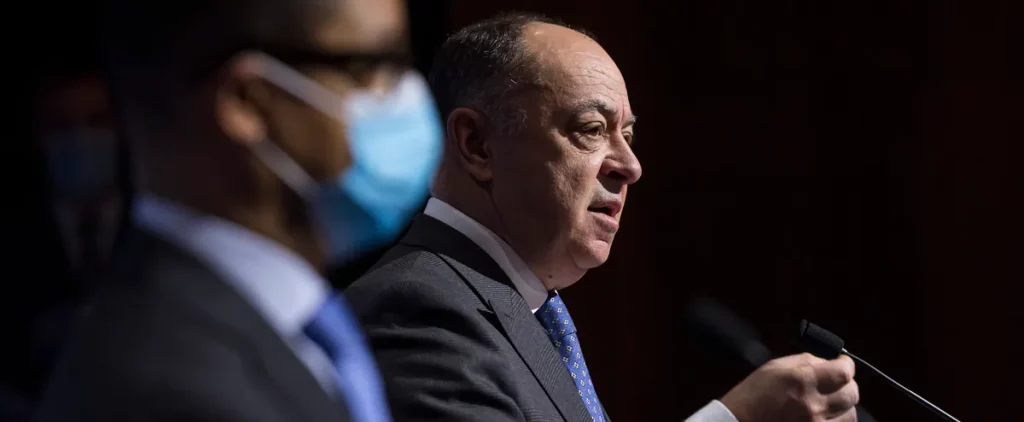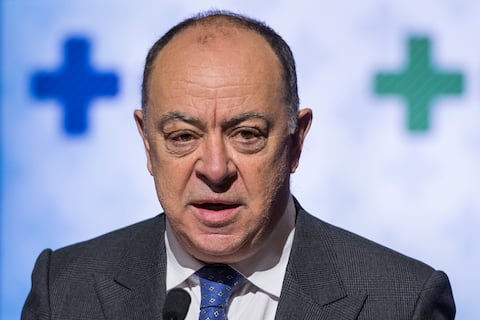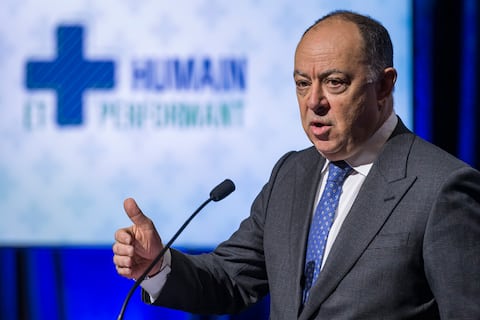
Quick access to medical clinic, more surgeries, less bureaucracy: The ambitious project is set with 50 priorities to reform the mammoth that has become the Quebec Health Network by 2025. “Quebecs deserve a better health care system,” Health Minister Christian Dubey said Tuesday. The minister assured that no matter how big his challenge ahead, “skeptics will be confused”. ⁇ Newspaper Here are 15 key pointers in moving the government forward.
Also read: Front-line care, a priority for Legalt
The patient will have a say
If the government wants to make health network administrators more accountable for system failures; Patients are also asked to cooperate.
The next front-line access counter is “a place where you can even give an evaluation of the service you have just received,” Minister Dubey suggested. To be more effective, the network especially needs to measure customer satisfaction.
Better care environments
Living environments “on a human level” will be at the heart of construction in the years to come, such as government-promised nursing homes.
We want to remove multiple rooms (even with two, three or four patients), which will reduce the transmission of infections, especially in CHSLDs.
Command Centers
The command center set up by the Jewish General Hospital in Montreal is a model that the government intends to implement on a large scale.
It is designed with key people in mental health, rehab or home support working together to ensure that the discharged person from the hospital continues to receive appropriate services. The goal is to reduce stress on emergencies. Mr Dubey said 25 hospitals in the Greater Montreal area had begun implementing the policy.
Patient-based funding
A big change is taking place in the care management approach: Funds follow the patient. The principle is that the patient can choose more where to get his care and the required budget will be followed. This vision defeated the idea that the hospital must respect a pre-determined budget without considering the actual needs. However, this change takes place in small steps.
A professional order for paramedics
After many years of demand, paramedics are eligible for the creation of a professional order. Often drowned out by emergency calls, frontline specialists can decide whether or not to rush a patient to the hospital. This change will reduce the pressure on the network by sending only emergency cases. We also guarantee that we will review the capabilities of the pre-hospital system.
Edible meal
Of all the measures aimed at improving the quality of life of the elderly in CHSLDs, the Government will ensure that food is paramount in the coming changes. Cold or unpleasant dishes that have been rejected for years by residents and their loved ones are a thing of the past. The government promises “concrete measures” and recalls ordering the Institute of Tourism and Hospitality of Quebec to improve the food offer.
Model to follow
Verdun CLSC in Montreal, Quebec only has a medical team that provides palliative care at home. The government hopes to get inspiration from them to expand them across the province.
“It already exists, but unfortunately, it does not apply everywhere,” lamented Christian Dubey. When only one nurse goes home, she should hand over the patient case to the hospital if she sees that the patient’s condition is deteriorating or needs medication adjustment.
However, the palliative care team at CLSC de Verdun allows 12 physicians to follow up with 1,100 patients and avoid traumatic stays in the emergency room.
Overtime is not mandatory
Minister Dubey reiterated the government’s commitment to end the compulsory overtime (TSO) condemned nurses’ election promise that the CAQ could not keep. Although he agreed that TSO was inevitable in the context, he assured that it should become an exception and not a management policy. The government also added that it would monitor the use of TSO and measure to find out where it points to a problem. However, there is no deadline.
Compare with the best ones
Minister Dubey argued that the time for keeping data confidential was over. Quebec shares data from its health network with the Canadian Institute for Health Information (CIHI) and other independent organizations to compare its performance with other provinces. In the past, Quebec was almost always excluded from comparisons conducted by CIHI, in particular.
Network computerization
The government wants to promote programs such as the ClickSante website, which has proven to be very useful in the epidemic of making vaccination appointments. We want patients to have direct access to their file (digital health record) and allow professionals to contact them for more data. Cybersecurity should also be given priority. But Minister Dubey did not promise to end the fax machine by 2025.
- Listen to Richard Martino’s interview with Moncef Derroji on QUB Radio:
Frontline access desk (gap)
Cubs who do not have a family doctor can make an emergency clinic appointment within 36 to 72 hours. Already established in Boss-Saint-Laurent, GAP will be implemented in all regions. By the end of the summer, it should be available to 50% of orphans. All FMGs will be connected to the system by the end of April. Patients can be treated by a health professional other than a doctor.
4000 more beds
The minister wants to provide about 4,000 additional hospital beds to the Dubai Health Network. “It simply came to our notice then [pendant la pandémie] How important are the beds, ”he stressed. He hopes to get the first 2,000 beds by hiring more staff, as the beds are currently closed due to staff shortages. The other 2,000 beds, like the Vaudreuil-Soulanges, come from new structures or expansions.
Private Reinforcement
The government relies on the private sector to detect delays in surgeries, without setting an exact target.
Last year, private clinics performed 87,000 surgeries at no cost to patients, or performed 14% of operations annually in the province. With the epidemic, 160,000 people were waiting, 20,000 of whom were over a year old. Christian Dubey seeks the help of the private sector to reduce this list.
For example, as with the vaccination campaign against COVID-19, it also hopes to increase the cooperation of pharmacists to accelerate access to care.
Decentralize management
The government aims for a “radical transformation of governance” to decentralize management, thereby giving more power to managers closer to the field. “The department is very involved in the management of day-to-day operations,” it reads. An example: Local administrators are assigned to each CHSLD to facilitate decision making and strengthen accountability.
Towards Mixed Remuneration
General practitioners will no longer have a fee for service, but will also be partially fixed (capitation). This payment approach takes into account the professional’s overall clients and further encourages physicians to see vulnerable patients. Following the signing of the new employment contract, the change is expected to take place in the spring of 2023.







More Stories
Allegations of corruption Qatar warns of ‘negative impact’ of European measures
USA: Famous “Hollywood cat” euthanized in Los Angeles
The campaigner who called for the shooting of Ukrainian children has not been charged